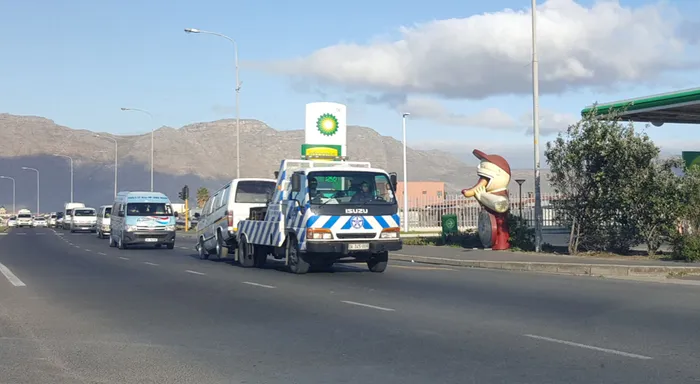Cape Town's traffic by-law reform looks to empower officers to impound vehicles

Cape Town launches overhaul of traffic by-law to tackle reckless driving.
Image: Supplied
The City's updated traffic by-law is out for public participation from Thursday, in the first major review of the legislation in 15 years.
Safety and Security Mayco member JP Smith said the original by-law was adopted in 2011, and this is the first significant overhaul since then.
“Work on the amendments began in 2019 through the Portfolio Committee on Safety and Security, with some provisions already gazetted in 2022.
“The review specifically looks at empowering officers to impound vehicles in instances of reckless or dangerous driving. The by-law is really an attempt to create meaningful behaviour change on our roads,” Smith said.
He noted that despite the high number of fines issued in Cape Town, driver behaviour has not improved.
“In March, April, May, June, and July, we issued between 181 000 and 344 000 fines per month. In August, 206 000 fines were issued. Over the past six months, that comes to 1 386 247 fines, valued at about R960 million,” said Smith.
“Cape Town has a higher fine payment rate than the rest of the country, but fines alone don’t seem to be changing driver behaviour.”
Smith pointed to South Africa’s road fatality rate, with between 13 000 and 16 000 deaths annually.
“That figure is higher than many of our African neighbours to the north, more than double in some cases, and internationally it compares very badly. We are accustomed to speaking about gang violence and other crimes as major causes of unnatural death. Still, we must recognise that reckless driving is also killing people every day,” he said.
Pedestrians remain the most vulnerable group. According to the Road Traffic Management Corporation’s 2023 statistics, 23% of road deaths were linked to jaywalking.
The City has added 200 traffic enforcement officers in the past four years, with 810 recruits deployed in the latest intake.
But Smith warned that fines and manpower alone will not resolve the crisis.
“Fines are issued, but serving warrants on offenders is difficult. Our warrant section does good work every day, tracing people with outstanding warrants who have ignored fines and failed to appear in court,” he said.
Public transport operators are among the biggest offenders.
“Some of these drivers have up to 1880 warrants,” said Smith.
He emphasised that the by-law would not target public transport drivers but all road users.
He added that new technologies, such as licence plate recognition cameras and dashcams, are helping the City track offenders more effectively.
The public will now have the opportunity to comment on the draft by-law before it is finalised by Council.
Portfolio committee chairperson for safety and security, Councillor Mzwakhe Nqavashe, said the amendments are designed to address reckless conduct that endangers other road users.
“We looked at the offences in Section 62 of the by-law, such as driving on the shoulder, obstructing traffic, overloading, and overtaking on solid barrier lines. These will now include impoundments. We also propose impounding vehicles where licences have expired for more than 90 days,” Nqavashe said.
“The argument is that the car itself is the object used to commit the offence. If we take that vehicle off the road, we are saving lives by ensuring safer travel for others.”
The proposed changes will be open for comment until October 20.
Submissions can be sent to traffic.bylaw@capetown.gov.za or delivered to the Gallows Hill Traffic Department in Green Point, or call 021 4447691 from 8am to 4:30pm weekdays.
Cape Times
Related Topics: